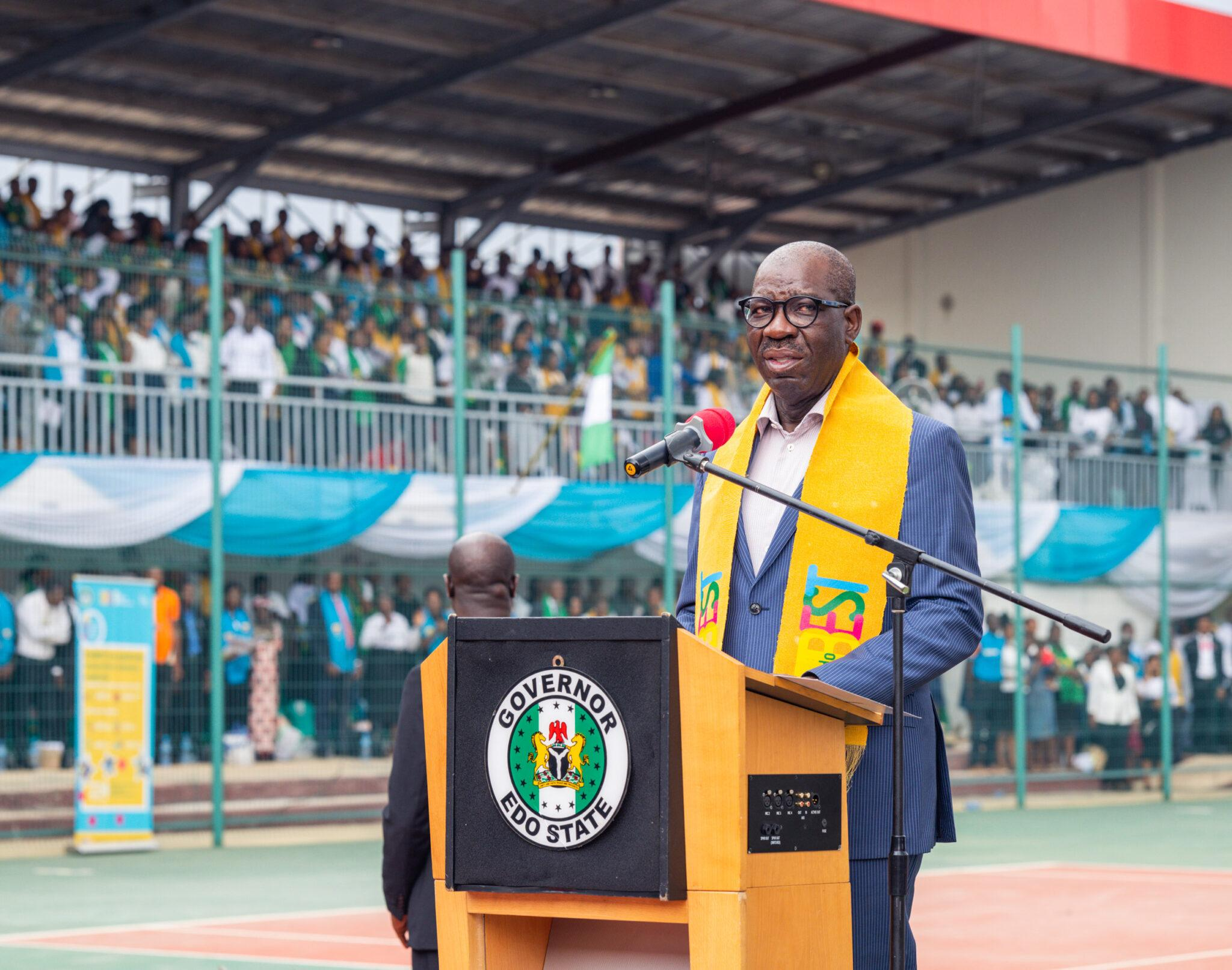The graduation ceremony of teachers, headteachers, principals, quality assurance officers and learning development officers which was held in Benin City recently has been described as a new beginning for EdTech penetration in Nigeria.
With the graduation ceremony, Edo State’s signature basic education sector reform programme, EdoBEST has expanded to 380 schools with 2,602 gadgets (teacher tablets and smartphones) handed over to the graduating trainees, thereby increasing tech-penetration in schools across the state.
Over 25,000 additional Edo children now have access to the EdoBEST pedagogy which has delivered improved learning experiences in classrooms across the state. The programme is now available to 280,000 pupils.
The ceremony was attended by top government functionaries, representatives of the Universal Basic Education Commission (UBEC), religious and traditional leaders, and other stakeholders. It provided an opportunity for Governor Godwin Obaseki to inspire graduands to deliver on the mandate of educating the next generation of Edolites.
“Teachers remain the most valuable resource in the delivery of transformational public basic education and this justifies our resolve to prioritize their recruitment and upskilling. Our teachers have become the bedrock of this reform,” Governor Godwin Obaseki, said while delivering his keynote address.
“Following a 10-day intensive training and capacity building, I am delighted to graduate a new batch of about 3,000 teachers, comprising Progressive Primary School teachers and headteachers; Junior Secondary School (JSS) teachers and principals, as well as successful EdoSTAR Fellowship candidates,” Governor Obaseki said.
The graduation ceremony signifies another milestone in basic education sector transformation initiated by Governor Godwin Obaseki in 2018. “With this event, the disarticulation of JSS in the state has officially commenced,” Governor Obaseki noted further.
A total of 577 teachers and headteachers from 148 progressive primary schools underwent the EdoBEST induction training in January 2022 while 1,859 teachers and principals from 232 junior secondary schools were trained in February. In addition, 166 school supervisors and quality assurance officers were recruited into the civil service and took part in the training.
Mrs Ozavize E. Salami, Executive Chairman, Edo State Universal Basic Education Board (Edo SUBEB) noted that “the most important element in any educational system is the teacher. That is why we have prioritised closing teacher-gaps in schools and the professional development of our teachers.”
“We are most proud of the inclusive and open process of the recruitment of the EdoSTAR fellows. Our fellows were selected based on their communities of residence and subject specialisation,” Mrs Salami said. She also charged the teachers saying that they must be held accountable for translating these investments into measurable learning outcomes.
Also speaking at the event, Dr. Joan Osa Oviawe, Edo State Commissioner for Education, motivated the graduands to see themselves as change agents of the reform saying,“when you get back to the classroom, you will realised that you have become well positioned, well trained and well prepared to act in your roles as transformative teachers of the 21st Century classroom and beyond.”
Selected graduands who spoke at the ceremony expressed high hopes for the impact of the training on the trajectory of their careers as “digital teachers”.
“At the start of training, I thought it was going to be just one of those regular trainings. But I found out that it was way beyond my expectation. It turned out to be an extremely rich programme. I think the Edo State government has done something for the Edo State people under the education sector beyond what we imagined,” Mrs Blessing Osakpolor, a graduand said.
“This is a training that every teacher should look forward to: I learnt how to manage my classroom better, how to motivate the pupils I teach to achieve greater result, and how to use technology to deliver impactful lessons that can lead to better learning outcomes for my pupils.”
The EdoBEST programme has been hailed by national and international basic education sector thought leaders as a remarkable reform programme that is expanding access to quality education by leveraging technology.
This article appeared originally on Techeconomy, March 18, 2022.


